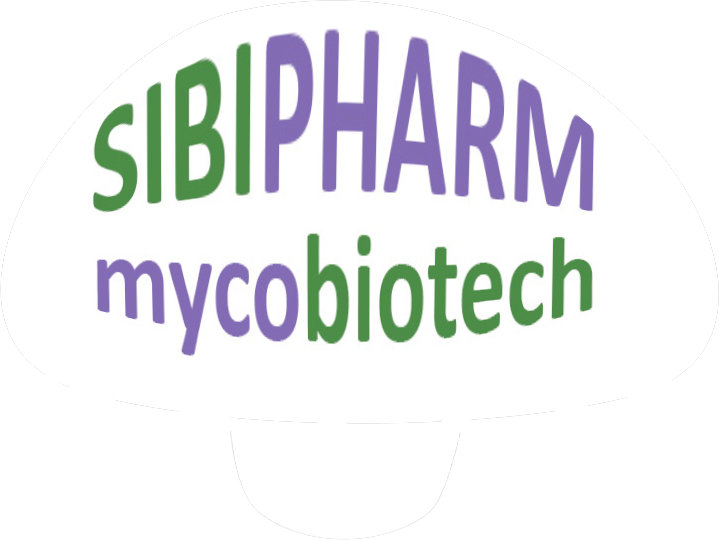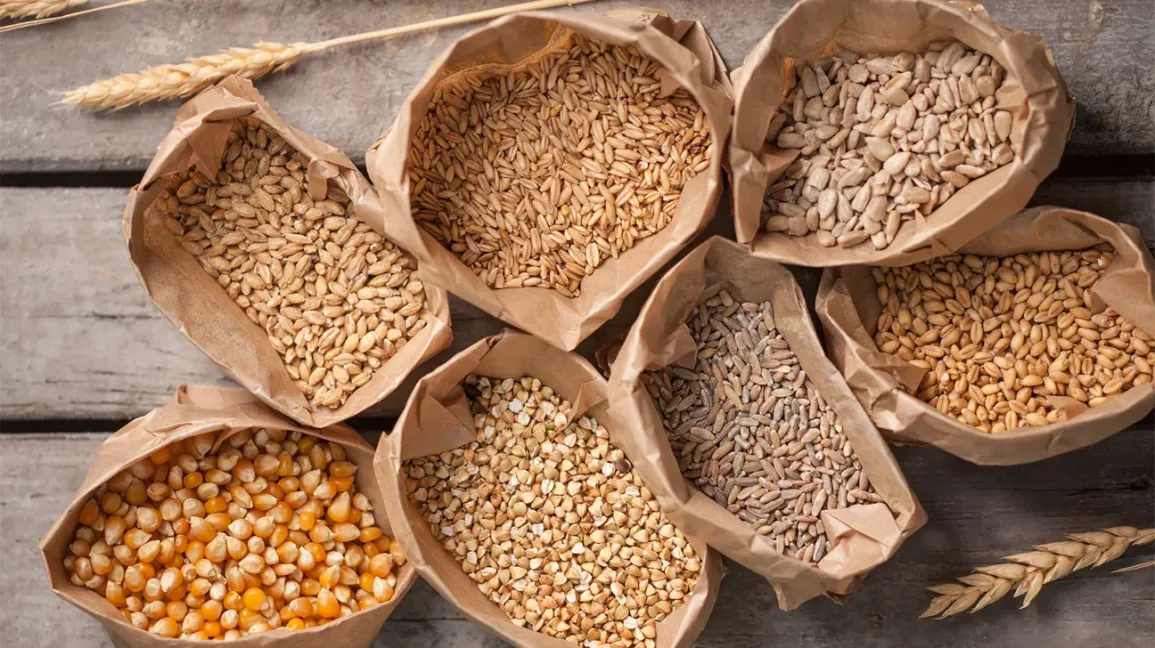What are beta-glucans?
Beta-glucans (β-glucans) are a group of high-molecular carbohydrates, which are a type of glucans consisting of β-D-glucose chains (polysaccharides in which glucose molecules are linked into long chains). These compounds are found in nature in mushrooms, cereals (such as oats and barley), freshwater and seaweed, yeast and some bacteria, playing an important role in their physiology. Due to their complex chemical structure, beta-glucans are not broken down in the stomach and have a variety of effects on the human body: they strengthen the immune system, lower cholesterol levels, reduce the risk of cardiovascular diseases and have other beneficial properties.
Mushroom beta-glucans: what is the difference?
Beta-glucans are linear polymers consisting of D-glucose monomers linked by β-glycosidic bonds. Different molecules have different structures, branching patterns and, consequently, properties. For example, the β-1,3/1,6-glucan laminarin, isolated from laminaria (seaweed), differs in composition and structure from the β-1,3/1,6-glucan pleuran, obtained from oyster mushrooms, and the β-1,3/β-1,6-glucan lentinan, contained in the shiitake mushroom. Most mushroom β-1,3-glucans are resistant to the effects of gastric juice. They enter the small intestine unchanged, where they bind to macrophage receptors, after which they are transported to the spleen, lymph nodes and bone marrow. In macrophages, high-molecular β-glucans are broken down into smaller fragments, which then interact with complement receptors type III (CR-3) on immune cells such as granulocytes. This helps activate the immune response.
Often, beta-glucans from mushrooms act in combination with proteins and other compounds, which provides a unique physiological effect. It is due to these properties that mushroom preparations with beta-glucans have been used for hundreds of years in traditional Chinese medicine and are actively studied by modern science in the context of treating various diseases.
Which beta-glucans are better?
The specific action of beta-glucans is due to the structure of their molecule, molecular weight, degree of branching of side structures, solubility in water and other parameters. In terms of activity in relation to the human body, one of the most effective is beta glucan 1.3 / 1.6 D, contained in mushrooms, yeast, bacteria. In this regard, mushroom raw materials compare favorably with beta-glucan analogues due to the relative ease of cultivation on an industrial scale, harmlessness to the body and the presence of additional benefits due to the presence of additional active substances (for example, the specific substance cordycepin in the cordyceps mushroom).
Forms of beta-glucans
Beta-glucans, as a biologically active supplement, are available in the following forms:
- mushroom powder from dried and cryogenically ground highly digestible natural raw materials;
- extract from natural raw materials, which contains an increased amount of beta-glucans with high bioavailability;
- synthesized beta-glucans (tablets, capsules, vitamins) in most cases do not have synergy with other mushroom components.
Composition
Beta-glucans are a large group of polysaccharides that differ in molecular composition and action. The most important of them are listed in the table.
Types of β-glucans isolated from mushrooms
| β-glucan name | Mushroom species | Structure | |
| Lentinan | LNT | Shiitake (Lentinula edodes) | 1,3-1,6-β-glucan |
| Pleuran | – | Oyster mushroom (Pleurotus ostreatus) | 1,3-1,6-β-glucan |
| MD fraction
Grifolaan |
PDF
GRN |
Мейтаке (Grifola frondosa) | 1,3-1,6-β-glucan |
| Scleroglucan | SSG | Sclerotinia (Sclerotium glucanicum, Sclerotium rolfsii) | 1,3-1,6-β-glucan |
| Krestin | PSK
PSP |
Coriolus (Trametes versicolor) | 1,3-β-glucan
1,4-β-glucan carbohydrate-protein complex with 1,3-β-D-glucans |
Scientific studies show a synergistic effect from the combined use of different β-glucans, the combined effect of which is more significant than with separate use of mushroom dietary supplements.
Lentinan
Lentinan is a beta-glucan obtained in 1970 from the fruiting bodies of the shiitake mushroom by a team of researchers led by G. Chihara. This polysaccharide is considered one of the most active components of the Lentinula Edodes mushroom with the following proven and potentially promising medical effects:
- antioxidant;
- immunostimulating;
- antitumor;
- hypolipidemic;
- nutritional support to prevent a decrease in nutritional functions associated with obesity.
Despite the complex effect on the body, lentinan is primarily considered as a means of enhancing immunity in cancer patients, as an immunomodulator and tumor growth inhibitor. It is promising both in terms of pharmacological action and because of its low toxicity and availability of raw materials for its production.
Grifolan
Grifola frondosa is a 1,3-1,6-β-D-glucan isolated from the edible maitake mushroom (Grifola frondosa). This component has antitumor properties, which have been proven in in vivo experiments and on mouse models in the works of Masuda Y. et al. (2013), Mao G.H. et al. (2015) and other studies. Grifolan can also be considered as an effective supportive agent in the treatment of diabetes (Chen Y.H. et al., 2015).
MD-fraction
MD-fraction is a β-glucan from maitake mushrooms, which is able to activate immunity at the cellular level and have an antitumor effect. The substance was discovered in 1985 by Professor Nanba from Kobe Pharmaceutical University. The MD fraction (M stands for “maitake”) has a special molecular structure that is not found in beta-glucans of other mushrooms. It is believed that it has strong immune effects, inhibits tumor growth and metastasis, and is a good means of supporting the body and preventing diseases.
Composition of beta-glucans in medicinal mushrooms
Beta-glucans are found in all mushrooms, including edible ones, being important elements of their cellular activity. The content can vary from 1 to 60% depending on the form of delivery. The proportion of beta-glucans in dried fruit bodies is presented in Table.
β-glucan content in dried mushrooms, as a percentage of dry weight
| Name | Cap | Leg |
| Shiitake | 20 | 25 |
| Hericium erinaceus | 10 | – |
| Trametes versicolor | 61 | – |
| Maitake | 26 | – |
| Reishi | 54 | – |
Medicinal properties of beta-glucans
Mushrooms for improving immunity
The effect of beta-glucan on the human immune system is complex and not fully understood. Studies show that when entering the intestine, the molecules are absorbed by the mucous membrane and activate macrophages, providing local immunity and protecting the endothelium from pathogenic microorganisms. At the same time, lymphocytes are activated through macrophages, triggering the protection of other organs. At the same time, some beta-glucans enter the blood and trigger the mechanism of cytokine synthesis in the liver and other mechanisms of the immune response.
Beta-glucans in oncology
Activation of immunity is one of the reasons why beta-D-glucans have been considered since the 1980s as an active means for the treatment and prevention of cancer. Dozens of in vitro and in vivo studies have been devoted to this topic. For example, a summary paper by Laiza Steimbach et al. published in 2021 showed that in 16 clinical trials involving 1,650 patients with 9 types of cancer, the use of beta-glucans in combination with radiation or chemotherapy reduced immune depression and helped restore the number of leukocytes. In particular, the works of F. Hong et al. (2003), Chan G.C. et al. (2009), Vetvicka V. et al. (2021) note the adjuvant effect of β-glucans, which results in the activation of immune effector cells and C3 phagocytes, which helps destroy tumor cells.
Beta-glucans in autoimmune diseases
Adaptation of the immune system due to the action of beta-glucans was considered a decisive factor in relation to autoimmune diseases. However, in the works of Therkelsen S.P. with co-authors (2014 and 2016) showed a modest effect of using a beta-glucan complex obtained from Agaricus blazei in ulcerative colitis, Crohn’s disease and inflammatory bowel diseases.
Anti-inflammatory effects of beta-glucans
The anti-inflammatory effect of beta-glucans isolated from Agaricus blazei and other mushrooms is noted in the studies of Smiderle F.R. with co-authors (2008), Du B. with co-authors (2015), Ruthes A.C. with co-authors (2013) and in other works. When taking mushroom beta-glucans orally in animal models, effects similar to non-steroidal anti-inflammatory drugs and glucocorticoids were recorded. Presumably, such an effect can be triggered by inhibiting the production of pro-inflammatory cytokines or the enzymes nitric oxide synthase and cyclooxygenase-2. The anti-inflammatory function of beta-glucans is also considered an important factor in the prevention and treatment of Parkinson’s disease, Alzheimer’s disease and other neurodegenerative diseases.
Beta-glucans for ARVI
There are several studies that have examined the effect of mushroom β-glucans on the treatment of infectious diseases of the respiratory tract. For example, Majtan J. (2012) showed that taking the mushroom β-glucan pleuran reduces the incidence of ARVI symptoms in athletes, increases the number and prevents a decrease in the activity of natural killer cells. M. Jesenak et al. studied the effect of pleuran on morbidity in a group of 175 children aged 3 to 7 years. A double-blind, placebo-controlled, randomized, multicenter study showed that taking mushroom beta-glucan reduces the risk of ARVI by 15 percentage points compared to children in the control group.
Beta-glucans contraindications
Being a natural raw material, mushroom beta-glucans are non-toxic to the human body, but they are contraindicated in the following cases:
- individual glucose intolerance;
- individual intolerance to other components of mushrooms (if beta-glucans are taken in the form of mushroom powder, extract or in another natural form);
- during pregnancy and lactation;
- beta-glucans are contraindicated for children under 1 year of age.
Beta-glucans: expert reviews
Numerous studies confirm that beta-glucans obtained from mushrooms are safe for the human body and can be used as a supporting dietary supplement. Doctors note their immunostimulating, anti-inflammatory and other positive effects with long-term use of natural dietary supplements. To achieve the best result, it is recommended to combine their intake due to the synergistic effect of different mushrooms.
Disclaimer: The information provided in this article is for educational and informational purposes only. It is not intended as a substitute for professional medical advice, diagnosis, or treatment. Always seek the advice of a physician or other qualified healthcare provider with any questions you may have regarding a medical condition.






